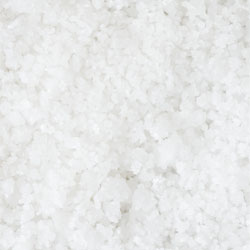
TABLE SALT (Refined iodized salt )
This is the most common type of salt, and it's what you'll find in most salt shakers. It's highly refined, with all impurities removed. It's best used for general cooking, baking, and seasoning dishes during or after cooking. As you read the label, you'll noticed the words "iodized." Iodized salt is table salt that has been fortified with iodine, a trace element that is essential for human health. Iodine is a crucial component of thyroid hormones, which regulate the body's metabolism and play a significant role in overall growth and development. A lack of iodine in the diet can lead to a condition known as iodine deficiency, which can result in thyroid problems, developmental issues, and various health problems, particularly in pregnant women and children.
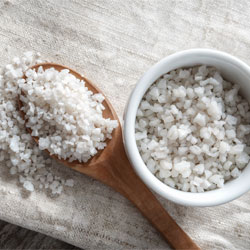
KOSHER SALT
Kosher salt has larger crystals than table salt, making it easier to pinch and sprinkle. It's a favorite among chefs for its ability to adhere well to food surfaces. It's great for seasoning meat before cooking and for brining. Kosher salt is typically mined from underground salt deposits and then processed to remove impurities. The name "kosher" refers to its use in koshering or preparing meat according to Jewish dietary laws, but it is not necessarily kosher-certified.
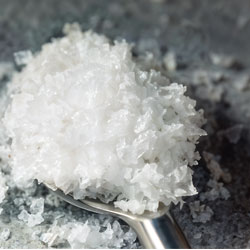
SEA SALT
Sea salt is harvested from evaporated seawater and comes in various textures and colors, depending on where it's from. It often retains some minerals and impurities, giving it a slightly different flavor profile. This process can result in sea salt that retains some minerals and impurities, giving it a unique flavor. It's excellent for finishing dishes, as a garnish, or for use in recipes where its unique texture and flavor are appreciated.
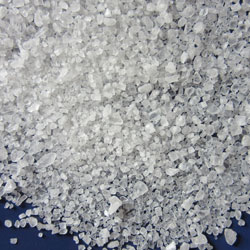
ROCK SALT
Generally rock salt is intended in ways that aren't meant for human consumption, like - de-icing roads for example. That said, large, chunky crystals of rock salt are commonly used in ice cream makers for quick freezing, for making salt-crusted dishes like whole fish, or in preservation of meats and cheeses. Even rock salt intended for culinary use, the large crystals take time to dissolve, so it's not the best for use in day to day cooking.
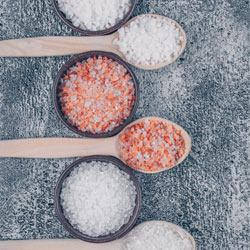
UNREFINED SALT
Unrefined salt is natural, unprocessed salt (or sodium chloride) extracted from natural sources. Unlike refined salt, unrefined salt contains all of its original trace minerals (including magnesium, iron, potassium, calcium, copper, zinc, and phosphorus) but doesn’t feature any additives or preservatives.